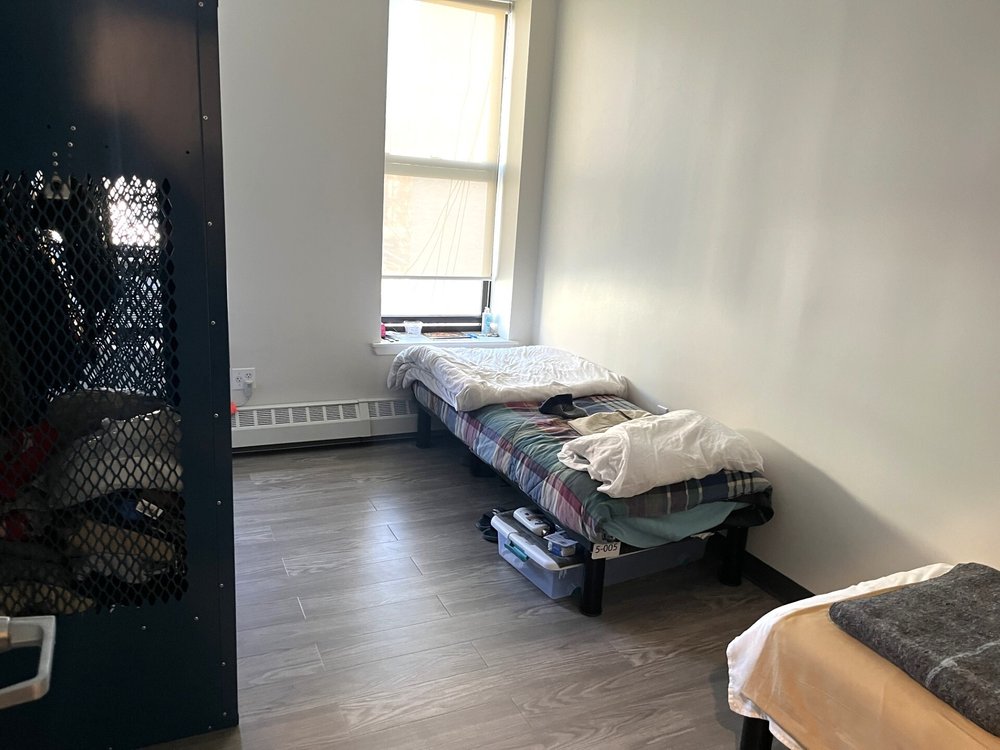New York opens first-in-nation homeless shelter for transgender people
Aug. 5, 2025, 3:23 p.m.
The shelter will offer services to 150 residents.

New York City has officially opened its first shelter for transgender and gender-nonconforming people who are homeless.
Officials say it’s the only city-funded shelter of its kind in the country and will help 150 transgender New Yorkers as the Trump administration has rolled back rights for the trans community, barring access to medical care, military service and federal documents that reflect their gender identity. The city is fully funding the facility in Long Island City, which will cost $65 million to operate through 2030.
The stand-alone shelter is part of a settlement reached with a transgender rights activist in 2021. The deal required the city to set aside beds for transgender and gender non-conforming people across the boroughs or create a separate shelter for them.
“ We've watched so many other corporations and foundations and businesses just like completely turn their back on the community and the city didn't do it,” said Sean Ebony Coleman, founder and CEO of Destination Tomorrow, the nonprofit that will manage the shelter for the city.
“The city is keeping in line with what New York City has always been, a sanctuary city, a safe haven, but more importantly, a trendsetter when it comes to LGBTQ rights.”
Nationally, nearly a third of transgender people say they’ve been homeless at some point in their lives, according to a study conducted by the National Center for Transgender Equality in 2022.
“Whether that starts with being kicked out of the home or discrimination in the employment market or all kinds of other things, this is a group that faces real challenges in the housing sector,” Department of Social Services Commissioner Molly Wasow Park said.
She said the city places homeless individuals in shelters that align with their gender identity. Already, the city is required, as a result of past litigation, to provide at least 30 beds across the city for transgender and gender nonconforming people. Now that the new shelter is open, transgender and gender nonconforming people can either use beds in existing shelters or transfer to the new specialized shelter.
Coleman, who identifies as trans masculine, said the shelter will help transgender and gender nonconforming people who are homeless feel valued and seen, and get the help they need to stabilize their lives.
“ They're in an environment that completely affirms who they are and how they see themselves, which mentally gives you the strength to face any challenge you have,” Coleman said.
“ Can you imagine going into an environment and you're asking for help and they're constantly misgendering you and constantly telling you you're not who you say you are, how do you learn in that environment? How do you thrive in that environment? It's almost impossible.”
Park said the agency made sure to select a provider with deep experience working with the transgender community. The shelter will provide a psychiatrist on site, culinary classes, GED classes and help with job placement and job training.
The shelter is named Ace’s Place in honor of Coleman’s late mother, who was nicknamed Ace and would have turned 72 years old today. Coleman said his grandmother would always open her home to his mother, who struggled with drug addiction.
“It's an opportunity for you to come home and for you to get loved up on and get all of the things that you need to get right back out here and face this world,” Coleman said.
Correction: This story has been updated to reflect that the city is required to provide a total of at least 30 beds to transgender and gender nonconforming people across the city.
It was also updated to include additional context about the legal settlement reached between the city and a transgender activist over shelter accommodations.
‘Nowhere to go’: More New Yorkers are entering city homeless shelters, report says NYC vowed to put more social workers in shelters. So far the results are promising.